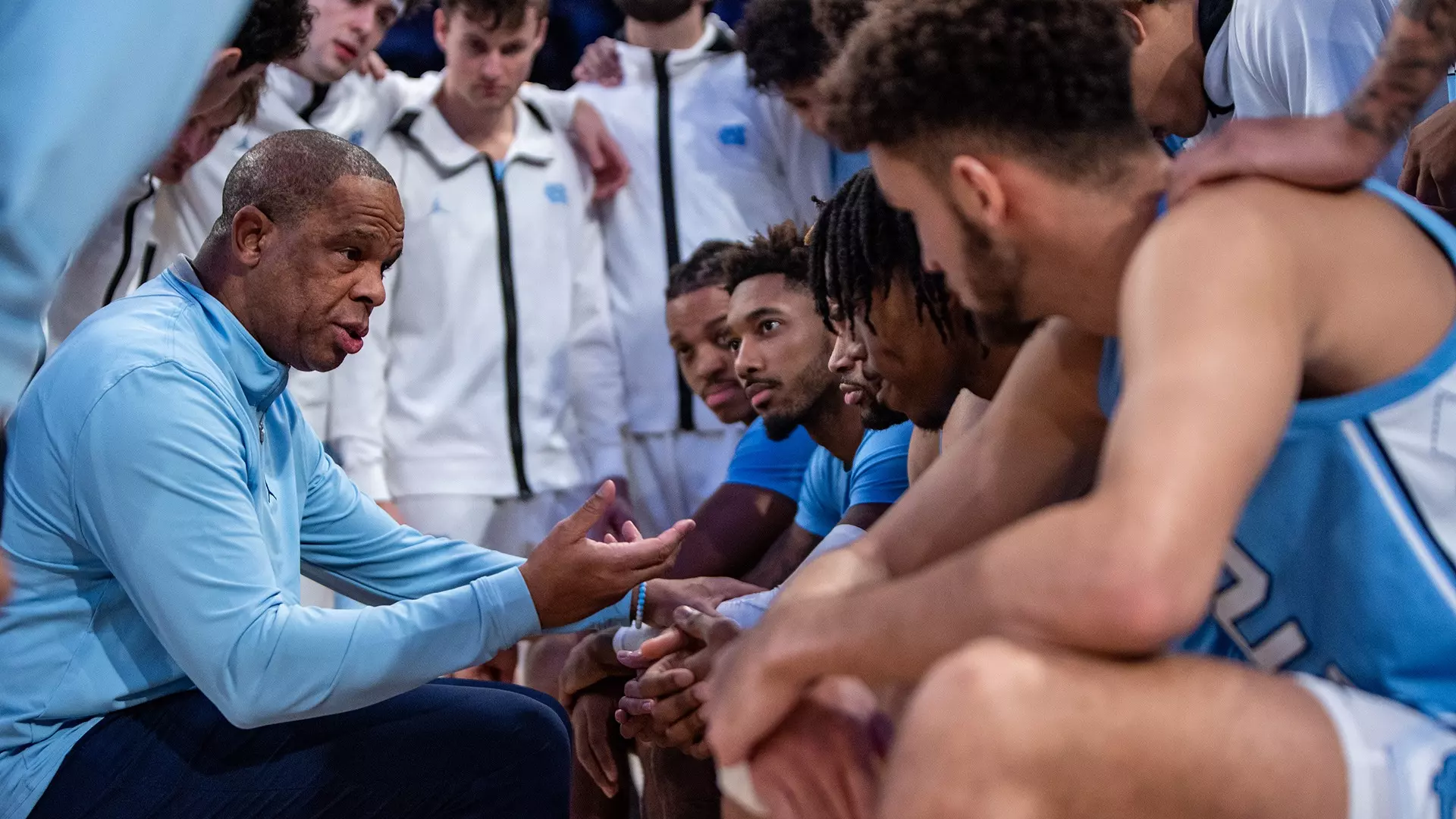The Science of Getting Better Every Single Day
The Foundation of Elite Training Nutrition
Your training nutrition strategy can make the difference between a good workout and a legendary one. It’s also what separates players who get stronger every week from those who plateau or break down.
Think of your body as a high-performance basketball engine. Like any elite machine, it needs the right fuel at the right time to perform optimally and avoid breaking down.
Research from elite basketball programs shows that proper training nutrition can:
- Increase training intensity by 15-20%
- Improve skill acquisition during practice
- Reduce injury risk by up to 30%
- Accelerate recovery between sessions by 25%
The training nutrition philosophy: Fuel performance, accelerate adaptation, dominate recovery.
Pre-Training Nutrition: Loading Your Performance Engine
The Science Behind Pre-Workout Fueling
Your muscles store approximately 300-600 grams of carbohydrates as glycogen. During intense basketball training, you can burn through 30-60 grams of carbs per hour. Without proper pre-training nutrition, you’ll hit the wall halfway through practice.
Research shows that athletes who eat strategically before training can:
- Maintain higher power output for 23% longer
- Preserve muscle glycogen stores for late-training intensity
- Reduce muscle protein breakdown during exercise
- Maintain better focus and decision-making throughout training
The 3-Hour Pre-Training Power Meal
Timing: 3-4 hours before intense training Purpose: Provide sustained energy without digestive discomfort
The Championship Formula:
- Carbohydrates: 1-2g per pound of body weight
- Protein: 0.25g per pound of body weight
- Fat: Under 0.2g per pound of body weight
- Fluids: 16-20 oz water + 8-12 oz other beverages
Example for 150lb player: 150-300g carbs, 37g protein, under 30g fat
Elite Pre-Training Meals:
The Oatmeal Powerhouse
- 1.5 cups oatmeal with sliced banana and honey
- 2 scrambled eggs with vegetables
- 1 cup orange juice
- Performance Impact: 3-4 hours of sustained energy, stable blood sugar
The Rice Bowl Champion
- 1.5 cups brown rice with grilled chicken
- Mixed vegetables with olive oil
- 1 cup milk
- Performance Impact: Balanced macros, familiar comfort food
The Pasta Pre-Load
- 2 cups whole grain pasta with marinara sauce
- 4 oz lean ground turkey
- Side salad with light dressing
- Performance Impact: High carb loading for intense training days
The 1-Hour Pre-Training Quick Fuel
Timing: 60-90 minutes before training Purpose: Top off energy stores without stomach upset
The Quick Fuel Formula:
- Carbohydrates: 0.5-1g per pound of body weight
- Protein: Under 10g total
- Fat: Under 5g total
- Fiber: Under 5g total
Championship Quick Fuel Options:
The Banana Power Pack
- 1 large banana with 1 tablespoon honey
- Delivers: 44g carbs, instant energy, natural electrolytes
- Best for: Players who get nervous stomach before training
The Toast & Jam Classic
- 2 slices whole grain toast with jam
- Delivers: 50g carbs, familiar comfort, quick digestion
- Best for: Early morning training sessions
The Sports Drink Strategy
- 16 oz sports drink + 1 granola bar
- Delivers: 50g carbs, immediate fuel, electrolyte replacement
- Best for: Back-to-back training days
The 15-30 Minute Emergency Fuel
When: You’re running late but need energy What: Simple carbs only, 15-30g maximum
Emergency Fuel Options:
- 1/2 banana (13g carbs)
- 8 oz sports drink (14g carbs)
- 3 dates (20g carbs)
- 1 tablespoon honey (17g carbs)
During-Training Nutrition: Maintaining Your Engine
The Science of In-Training Fueling
For training sessions under 60 minutes, water is sufficient. But for longer, intense sessions, your body benefits from carbohydrate replacement to maintain performance and delay fatigue.
Research shows that consuming 30-60g carbs per hour during extended training:
- Maintains blood glucose levels when muscle glycogen depletes
- Preserves muscle glycogen for end-of-training intensity
- Reduces perceived exertion (training feels easier)
- Improves cognitive function for better decision-making
Training Duration Guidelines
Under 60 Minutes:
- Fluid: Water only, 6-8 oz every 15-20 minutes
- Total intake: 16-24 oz depending on sweat rate
- Focus: Hydration maintenance
60-90 Minutes:
- Fluid: Sports drink with 6-8% carbohydrate solution
- Carbs: 30-60g per hour from drinks
- Timing: 6-8 oz every 15-20 minutes
- Focus: Energy and electrolyte replacement
Over 90 Minutes:
- Fluid: Sports drinks plus potential solid food
- Carbs: 60-90g per hour from multiple sources
- Options: Sports drinks, bananas, energy chews, dates
- Focus: Sustained energy for long training sessions
Elite During-Training Options:
Homemade Sports Drink
- 1 cup water + 2-3 tablespoons sugar + 1/4 teaspoon salt
- Cost: Under $0.10 per serving vs $1.50 for commercial
- Control: Adjust sweetness and electrolyte content
Natural Training Fuel
- 1/2 banana every 30-45 minutes (13g carbs)
- Coconut water for natural electrolytes
- Dates for quick energy (3 dates = 20g carbs)
Post-Training Recovery: Rebuilding Your Basketball Engine
The Science of the Recovery Window
The 30-60 minutes after training is when your body is most receptive to nutrients. This “anabolic window” is when you can maximize:
- Muscle protein synthesis (building and repairing muscle)
- Glycogen replenishment (refueling energy stores)
- Reducing exercise-induced inflammation
- Optimizing adaptations to training
Missing this window doesn’t ruin your progress, but capitalizing on it accelerates improvement.
The Post-Training Recovery Formula
Timing: Within 30 minutes of finishing training Purpose: Kickstart recovery and adaptation processes
The Championship Recovery Ratio:
- Carbohydrates: 0.5-1g per pound of body weight
- Protein: 0.25-0.4g per pound of body weight
- Fluids: 150% of weight lost during training
Example for 150lb player: 75-150g carbs, 37-60g protein
The Recovery Hierarchy:
Tier 1: Liquid Recovery (0-15 minutes)
Chocolate Milk: The Research Champion
- Formula: 16-20 oz low-fat chocolate milk
- Delivers: 48-60g carbs, 16-20g protein, optimal 3:1 ratio
- Science: Over 20 studies show chocolate milk equals expensive recovery drinks
- Cost: $1.50 vs $3.50 for commercial recovery drinks
The Championship Smoothie
- 1 cup milk + 1 banana + 1 scoop whey protein + 1 tbsp honey
- Delivers: 65g carbs, 35g protein, rapid absorption
- Benefit: Customizable, tastes great, nutrient-dense
Recovery Drink DIY
- 16 oz water + 2 scoops whey protein + 1 banana + 1 tbsp honey
- Delivers: 50g carbs, 50g protein, immediate availability
- Best for: Players avoiding dairy or controlling calories
Tier 2: Semi-Solid Recovery (15-45 minutes)
Greek Yogurt Power Bowl
- 1 cup Greek yogurt + 1/2 cup granola + 1 cup berries + honey
- Delivers: 80g carbs, 25g protein, probiotics for gut health
- Benefit: Sustained protein release, satisfying texture
The PB&J Revival
- 2 slices whole grain bread + 2 tbsp peanut butter + 2 tbsp jam + 1 cup milk
- Delivers: 75g carbs, 20g protein, comfort food satisfaction
- Benefit: Familiar, portable, hits the sweet spot
Turkey & Cheese Roll-Ups
- 4 oz sliced turkey + 2 oz cheese + 1 large apple + crackers
- Delivers: 45g carbs, 35g protein, convenient portability
- Benefit: High protein, easy to pack, doesn’t require preparation
Tier 3: Complete Recovery Meals (45-90 minutes)
The Championship Plate
- 6 oz grilled chicken breast + 1.5 cups brown rice + steamed vegetables
- Delivers: 85g carbs, 55g protein, complete nutrition
- Benefit: Whole food nutrition, satisfying, supports long-term adaptations
The Power Pasta
- 2 cups whole grain pasta + 4 oz lean ground beef + marinara sauce
- Delivers: 95g carbs, 40g protein, comfort food appeal
- Benefit: High carb replenishment, familiar flavors
Training-Specific Nutrition Strategies
Strength Training Days: Building Your Basketball Body
Pre-Strength Training (2-3 hours before):
- Focus: Higher protein to provide amino acids during training
- Example: 4 eggs + 2 slices toast + 1 cup berries
- Delivers: 40g carbs, 30g protein
Post-Strength Training:
- Focus: High protein (35-50g) for muscle protein synthesis
- Example: Protein smoothie with 2 scoops whey + milk + banana
- Delivers: 45g carbs, 50g protein
Throughout the Day:
- Strategy: Protein every 3-4 hours to maintain amino acid availability
- Target: 25-35g protein per meal
Conditioning Days: Fueling Your Basketball Engine
Pre-Conditioning (1-2 hours before):
- Focus: High carbohydrate availability for sustained energy
- Example: Large bowl oatmeal + banana + honey + milk
- Delivers: 100g carbs, 15g protein
During Conditioning (if over 60 minutes):
- Strategy: 30-60g carbs per hour from sports drinks
- Timing: 6-8 oz every 15-20 minutes
Post-Conditioning:
- Focus: 3:1 carb-to-protein ratio for glycogen replenishment
- Example: Chocolate milk + banana + granola bar
- Delivers: 85g carbs, 25g protein
Skill Training Days: Feeding Your Basketball Brain
Pre-Skill Training (1-2 hours before):
- Focus: Steady carbs for brain function and fine motor control
- Example: Greek yogurt + granola + berries
- Delivers: 50g carbs, 20g protein
Post-Skill Training:
- Focus: Balanced recovery with emphasis on brain nutrients
- Example: Turkey sandwich + milk + apple
- Delivers: 60g carbs, 25g protein
Two-A-Day Training: Managing Multiple Sessions
Between Sessions (2-4 hours apart):
- Critical: Recovery nutrition within 30 minutes of first session
- Strategy: Liquid recovery immediately, solid meal 60-90 minutes later
- Example: Chocolate milk → Chicken rice bowl
Session 1 Recovery:
- Immediate: 16 oz chocolate milk
- 60 minutes later: Complete meal with carbs + protein
Pre-Session 2:
- 90 minutes before: Light meal focusing on carb replenishment
- 30 minutes before: Sports drink or banana for quick energy
Sleep and Recovery Nutrition: Your Overnight Rebuild
The Science of Sleep Nutrition
Your body does most of its muscle repair and adaptation during sleep. Strategic pre-sleep nutrition can enhance:
- Muscle protein synthesis throughout the night
- Growth hormone release for recovery
- Sleep quality and duration
- Morning energy levels
The Pre-Sleep Nutrition Protocol
Timing: 1-2 hours before bed Purpose: Provide sustained amino acids for overnight muscle repair
The Overnight Recovery Formula:
- Protein: 25-40g slow-digesting protein
- Carbs: 20-30g to support tryptophan uptake
- Magnesium: 200-400mg for muscle relaxation and sleep quality
Elite Pre-Sleep Options:
The Casein Champion
- 1 scoop casein protein + 1/2 banana + 1 cup milk
- Delivers: 35g slow-release protein, sleep-supporting carbs
- Science: Casein provides amino acids for 6-8 hours
Greek Yogurt Nightcap
- 1 cup Greek yogurt + 1 tbsp honey + handful of berries
- Delivers: 25g protein, natural melatonin precursors
- Benefit: Probiotics support gut health during sleep
Cottage Cheese Classic
- 1 cup cottage cheese + sliced fruit
- Delivers: 28g casein protein, satisfying texture
- Benefit: High protein density, budget-friendly
Sleep Optimization Nutrition Tips
Sleep-Supporting Foods:
- Tart cherry juice: Natural melatonin for better sleep onset
- Turkey: High tryptophan content promotes sleepiness
- Complex carbs: Support serotonin production
- Magnesium-rich foods: Almonds, spinach for muscle relaxation
Sleep-Disrupting Foods to Avoid:
- Caffeine: 6+ hours before bedtime
- Large meals: 3+ hours before sleep
- High sugar: Causes blood sugar fluctuations
- Excessive fluids: Leads to midnight bathroom trips
Weekly Periodization: Matching Nutrition to Training Load
Heavy Training Weeks: Fueling Maximum Adaptation
Nutrition Adjustments:
- Increase total calories: 10-15% above baseline
- Boost carb intake: 20-30% increase from baseline
- Maintain protein: 1.2g per pound body weight
- Add recovery snacks: Between meals and training sessions
Daily Structure:
- Larger breakfast: Extra carbs and protein
- Pre/post training: Never skip these meals
- Additional snacks: Greek yogurt, fruit, nuts between meals
- Hydration focus: Extra 16-24 oz daily
Deload/Light Weeks: Maintaining Without Excess
Nutrition Adjustments:
- Reduce calories: 5-10% below heavy training weeks
- Lower carb intake: 15-20% decrease from heavy weeks
- Maintain protein: Keep muscle preservation high
- Focus on micronutrients: Emphasize nutrient-dense foods
Daily Structure:
- Normal breakfast: Standard portions
- Lighter pre-training: Less carb loading needed
- Maintain post-training: Recovery still important
- Quality focus: Choose nutrient-dense over calorie-dense
Competition Weeks: Priming for Performance
Nutrition Strategy:
- Maintain established patterns: Don’t change what works
- Carb load: 2-3 days before competition
- Hydration focus: Start early, maintain consistently
- Avoid new foods: Stick to familiar, tested options
3 Days Before Competition:
- Carb loading: 5-7g carbs per pound body weight
- Reduce training volume: Allow glycogen supercompensation
- Maintain protein: Support recovery from final preparations
Advanced Recovery Strategies: Beyond Basic Nutrition
Anti-Inflammatory Nutrition for Faster Recovery
The Inflammation Connection Intense basketball training creates beneficial inflammation that drives adaptation, but excessive inflammation slows recovery. Strategic nutrition can optimize this balance.
Anti-Inflammatory All-Stars:
Omega-3 Fatty Acids
- Sources: Salmon, walnuts, flaxseeds, chia seeds
- Target: 2-3g daily for active athletes
- Benefit: Reduces exercise-induced inflammation, supports joint health
Antioxidant-Rich Foods
- Berries: Anthocyanins reduce muscle damage
- Tart cherries: Natural anti-inflammatory compounds
- Dark leafy greens: Multiple antioxidant compounds
- Colorful vegetables: Variety ensures broad antioxidant coverage
Anti-Inflammatory Spices
- Turmeric: Curcumin reduces inflammation markers
- Ginger: Supports digestion and reduces muscle soreness
- Cinnamon: Helps regulate blood sugar and inflammation
Hydration Strategies for Optimal Recovery
Recovery Hydration Protocol:
- Immediate post-training: 150% of fluid lost (weigh before/after)
- Throughout recovery: Continue hydrating until urine is pale yellow
- Electrolyte replacement: Include sodium and potassium for sessions over 90 minutes
Advanced Hydration Tips:
- Pre-hydrate: Start 24 hours before intense training
- Monitor losses: Track body weight changes to personalize needs
- Quality matters: Filtered water, natural electrolyte sources when possible
Supplement Strategies for Enhanced Recovery
Evidence-Based Recovery Supplements
Creatine for Power Recovery
- Dosage: 3-5g daily ongoing
- Benefit: Faster phosphocreatine resynthesis between high-intensity efforts
- Best for: Players focused on explosive power development
Whey Protein for Rapid Recovery
- Dosage: 25-40g post-training
- Benefit: Fast absorption, complete amino acid profile
- Best for: Convenient post-training protein when whole foods aren’t available
Vitamin D for Overall Health
- Dosage: 1000-2000 IU daily (test blood levels first)
- Benefit: Immune function, bone health, muscle function
- Best for: Players with limited sun exposure or deficiency
Magnesium for Sleep and Muscle Function
- Dosage: 200-400mg before bed
- Benefit: Muscle relaxation, improved sleep quality
- Best for: Players experiencing muscle cramps or poor sleep
Recovery Nutrition Troubleshooting
Common Recovery Mistakes and Solutions
Mistake 1: Skipping Post-Workout Nutrition
- Problem: Delayed recovery, reduced adaptation
- Solution: Always have backup options ready (protein bars, chocolate milk)
Mistake 2: Only Focusing on Protein
- Problem: Incomplete recovery, poor glycogen replenishment
- Solution: Include carbs in 2:1 or 3:1 ratio with protein
Mistake 3: Inadequate Hydration Replacement
- Problem: Prolonged fatigue, poor next-day performance
- Solution: Weigh before/after training, replace 150% of losses
Mistake 4: Poor Sleep Nutrition
- Problem: Incomplete overnight recovery
- Solution: Strategic pre-sleep protein and sleep-supporting foods
Tracking Your Recovery Nutrition Success
Key Performance Indicators:
- Energy levels: Consistent throughout training
- Sleep quality: Falling asleep easily, waking refreshed
- Training capacity: Maintaining intensity across sessions
- Muscle soreness: Reasonable soreness that decreases within 48 hours
- Mood and motivation: Staying positive and eager to train
Weekly Check-ins:
- Rate energy (1-10): Track patterns and identify nutrition correlations
- Sleep hours and quality: 8+ hours, minimal wake-ups
- Training performance: Times, weights, skills improving
- Recovery markers: Heart rate variability, subjective wellness
The Recovery Advantage: Your Competitive Edge
While Your Competition Is:
- Skipping post-workout nutrition and recovering slowly
- Eating poorly and dealing with chronic inflammation
- Getting inadequate sleep and missing growth hormone release
- Training hard but not recovering smart
You’ll Be:
- Maximizing every recovery window with strategic nutrition
- Reducing inflammation and bouncing back faster
- Supporting sleep quality for optimal overnight repair
- Training hard AND recovering like a champion
The players who master recovery nutrition don’t just train harder – they adapt faster, stay healthier, and perform better when it counts.
Your recovery nutrition strategy is what separates players who improve every week from those who plateau. Master the post-training window, optimize your sleep nutrition, and watch your basketball house get stronger with every session.
Recovery isn’t passive – it’s an active part of getting better. Master recovery nutrition, and you’ll outwork everyone by working smarter.
Check out our full Nutrition Series:
Part 1 – The Science of Basketball Nutrition
Ready to take your training to the next level? It all starts with how you fuel and recover. Every post-workout meal is an investment in tomorrow’s performance.





